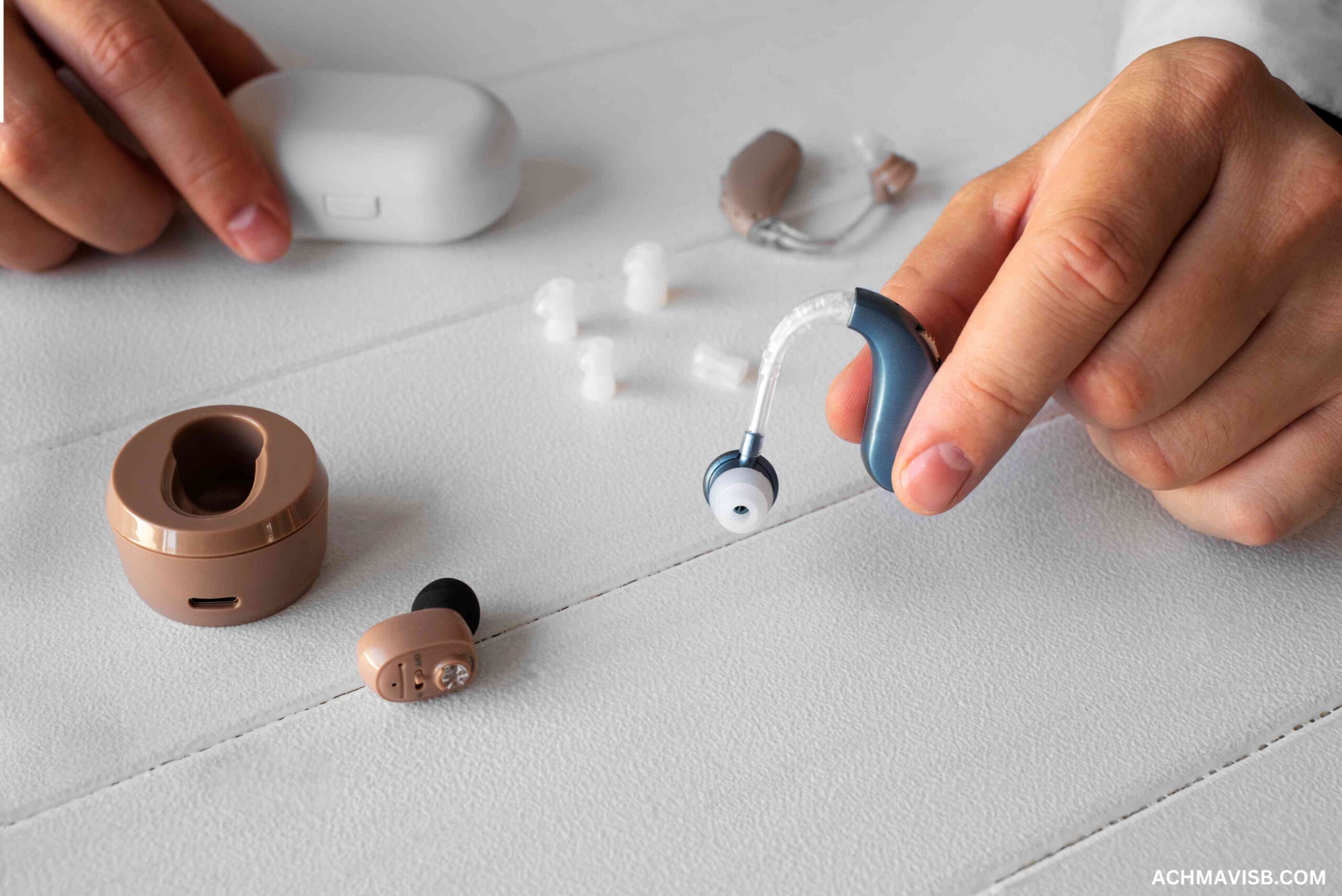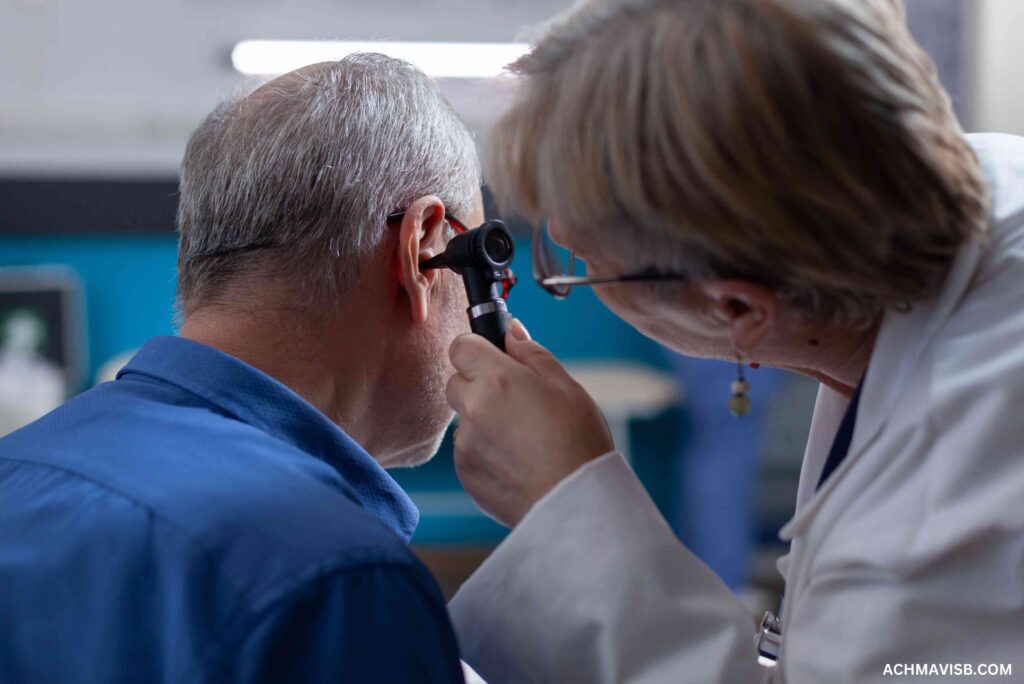Can I Use Neosporin in My Hearing Aid Domes? 5 Mistakes You Can’t Afford to Make

Hearing aids are a lifeline for millions of people, helping them to enjoy conversations, music, and the sounds of the world around them. But if you use hearing aids, you’ve likely experienced some discomfort or irritation in your ears at one point or another. One common solution that might come to mind is applying a small amount of Neosporin inside your hearing aid domes. After all, it works wonders on cuts and scrapes, right? But before you reach for that tube, there are some critical mistakes you need to avoid.
In this article, we’ll explore whether you can use Neosporin in your hearing aid domes, what you should avoid, and what you can do to ensure your hearing aids are clean and comfortable.
Table of Contents
ToggleIntroduction
It’s a situation many hearing aid users face—ear discomfort, dryness, or irritation from the domes that sit snugly in your ear canals. A natural thought might be to grab a familiar over-the-counter ointment like Neosporin to soothe the irritation. But is that a good idea? While Neosporin can work wonders on cuts and abrasions, applying it in or near your hearing aids could lead to more harm than good.
In this guide, we’ll delve into the risks of using Neosporin in your hearing aid domes, the potential damage it could cause, and the safe alternatives you should consider instead.
Can I Use Neosporin in My Hearing Aid Domes?
The short answer is no. While it may seem like a harmless idea to apply Neosporin to the domes or tips of your hearing aids to soothe irritation, it can actually cause more problems than it solves. Hearing aids are delicate electronic devices, and any moisture, creams, or ointments can potentially interfere with their functionality. Additionally, Neosporin is designed for external use on skin and wounds, not for the sensitive interior of your ear canal.
So, why exactly is Neosporin a bad idea? Let’s break it down.
What Happens When You Use Neosporin in Hearing Aids?
Hearing aid domes sit snugly inside your ear canal, a space that’s sensitive to both moisture and chemicals. Neosporin contains petroleum jelly and other ingredients that can clog the tiny microphones and speakers within your hearing aid domes. When these components get blocked or coated with residue, it can reduce the device’s effectiveness or even lead to costly repairs. Worse yet, moisture from the ointment can seep into the hearing aids, leading to internal damage and possibly voiding your warranty.
Not only can Neosporin affect your hearing aids, but it can also cause additional ear issues. Ointments aren’t designed to be used in the ear canal, where they could cause further irritation or even infections if not applied correctly.
5 Mistakes You Can’t Afford to Make
1. Not Consulting a Healthcare Professional
Before using any type of ointment or cream on or near your hearing aids, it’s critical to consult a healthcare professional, such as an audiologist or ear, nose, and throat (ENT) specialist. They can help determine the root cause of your ear irritation and recommend safe and effective treatments that won’t harm your hearing aids.
2. Overusing Neosporin
Even if your doctor suggests an ointment, overuse can cause more harm than good. Neosporin, in particular, can lead to clogged domes or worse—damaging your hearing aids over time. Always use any prescribed treatment sparingly, following your doctor’s advice.
3. Damaging Your Hearing Aids
Hearing aids are fragile devices that are sensitive to moisture, dirt, and oils. Applying Neosporin or any greasy substance near your hearing aid domes can lead to malfunctioning, poor sound quality, or even permanent damage. A costly mistake you definitely want to avoid!
4. Ignoring Potential Allergic Reactions
While Neosporin is a trusted antibacterial ointment, some people may experience allergic reactions to its ingredients, particularly neomycin. In a small, enclosed space like your ear canal, even mild allergic reactions can cause severe discomfort, swelling, or pain. If you notice any irritation after using Neosporin, stop immediately and consult a healthcare professional.
5. Using the Wrong Products for Cleaning
Keeping your hearing aids clean is vital to avoid irritation, but not all cleaning products are safe to use. Avoid using water, alcohol-based solutions, or ointments like Neosporin. Instead, opt for products specifically designed for hearing aids, like hearing aid wipes or cleaning kits recommended by your audiologist.
What Can You Use for Hearing Aid Irritation?
If your hearing aids are causing ear irritation, you don’t have to suffer in silence. There are safer alternatives to Neosporin that can help. Ear lubricants designed specifically for hearing aid users, like those with glycerin or aloe vera, can provide relief without damaging your devices. Consult your healthcare provider for recommendations on suitable products.
Additionally, ensuring your hearing aids are properly fitted is crucial. Domes that are too tight or poorly positioned can cause friction and irritation. An audiologist can help adjust your hearing aids for a better fit.
Proper Maintenance of Hearing Aids

Maintaining your hearing aids regularly can prevent many of the issues that cause discomfort and irritation. Here are a few maintenance tips:
- Daily Cleaning: Use a dry, soft cloth to wipe down your hearing aids every day to remove dirt and moisture.
- Regular Dome Replacement: Domes should be replaced regularly, as they can accumulate dirt, oil, and wax over time, causing irritation.
- Avoid Moisture: Never expose your hearing aids to water or store them in damp areas. Consider using a dehumidifier designed for hearing aids.
Tips for Preventing Ear Irritation
Preventing ear irritation starts with good hygiene and proper hearing aid care. Here are some simple tips to keep your ears comfortable:
- Clean Your Ears Gently: Use a soft washcloth or ear cleaner as recommended by your doctor.
- Let Your Ears Breathe: Take short breaks from your hearing aids throughout the day to give your ears some time to rest.
- Use Hearing Aid-Specific Products: Opt for ear lubricants and cleaning products made for hearing aid users to avoid irritation.
Conclusion
While it may seem tempting to use Neosporin to soothe irritation from your hearing aids, the risks far outweigh the benefits. Not only can it damage your devices, but it could also lead to further ear problems. Instead, consult with a healthcare provider to find safe alternatives and ensure your hearing aids fit properly. With the right care and attention, you can keep your hearing aids working well and your ears feeling comfortable.
Frequently Asked Questions (FAQs)
1. Can I use Neosporin in my hearing aid domes?
No, using Neosporin in your hearing aid domes can damage your devices and cause additional ear problems.
2. What can I use to soothe irritation from my hearing aids?
You can use ear lubricants specifically designed for hearing aid users, or consult your audiologist for recommendations.
3. How often should I clean my hearing aids?
Hearing aids should be cleaned daily with a dry, soft cloth, and domes should be replaced regularly.
4. Can I clean my hearing aids with alcohol?
No, alcohol-based products can damage your hearing aids. Use cleaning kits designed for hearing aids instead.
5. What should I do if my hearing aids cause discomfort?
If your hearing aids are causing discomfort, consult with your audiologist for adjustments or product recommendations.



